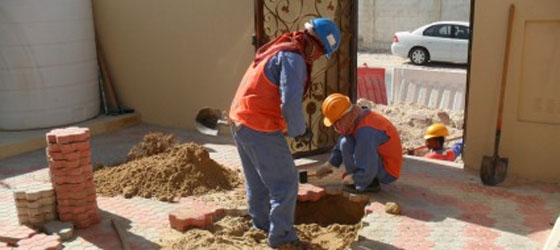The project to launch the upgrading and expanding of the sewerage infrastructure in south Doha will be tendered towards the end of this year. Work is expected to begin in the first quarter of the next year.
The salient features of the massive project, "Inner Doha Re-sewerage Implementation Strategy (Idris)", which is expected to cost about QR10bn, were unveiled by a team of consultants working with Qatar's Public Works Authority (Asghal) at a gathering attended by engineering and technical professionals, contractors, consultants and bankers.
While explaining the "magnitude" of the project that extends upto Mesaieed, officials hoped it would meet the demands of the population growth of an additional million residents in what they referred to as South Doha catchment. It will be fully implemented in about seven to eight years, with the earliest commissioning dates set for sometime in the middle of 2019. Once implemented, the project is expected to permanently solve the problem of sewage water flooding in parts of Doha city and the Industrial Area, participating engineers said.
The project's highlights include a more than 70km long treated sewage effluent return mains, a deep terminal pump station of approximately 60m, advanced sewage treatment works with an initial capacity of 500mn liters per day, a conveyance system consisting of over 30km of deep main trunk sewerage and 70km of lateral interceptor sewers.
Lateral sewers, it was told, would be used to intercept the flows and to relieve existing overloaded system. The flows will be channelized by gravity to the terminal pump station through the main trunk sewer and then lifted to the new Doha South Sewage Treatment Works (STW) in Mesaieed Industrial City (MIC).
With initial projections indicating that the long-term foul sewage will range from 670mn to 1,100mn litres a day, the new plant will be built in phases to match actual growth in the catchment area. The initial phase to be built under the Idris will treat 500mn litres of effluent wastes a day with the site layout configured to accommodate additional phases that could eventually bring its total capacity to 1,200mn liters a day.
The entire program, being implemented after extensive studies and researches carried out by teams of acclaimed professionals, took an integrated approach whereby various influences on sewage flows were examined. They included projected community growth, existing conditions of the drainage system and a host of forthcoming developments such as Doha Expressway Motorway System and Qatar Rail's Metro, works of which are underway.
Gulf Times
24 January






















































